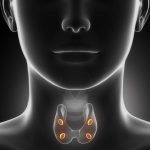Fathers Who Are Involved Can Lower Behavioral Issues and Improve Well-Being
NODE SMITH, ND
In low-income families, fathers who are engaged in their children’s lives can help to improve their mental health and behavior, according to a Rutgers University-New Brunswick study published in the journal Social Service Review.
The researchers found that adolescents in low-income families whose fathers are more frequently engaged in feeding, reading, playing and other activities and who provide necessities such as clothes and food throughout their childhood have fewer behavioral and emotional problems — reducing a significant gap between poor families and those with higher socioeconomic status.
“On average, children in lower socioeconomic status families tend to have more behavior problems and their fathers have lower levels of overall involvement than those in higher socioeconomic status families,” said lead author Lenna Nepomnyaschy, an associate professor at Rutgers University-New Brunswick’s School of Social Work.
The researchers analyzed data on the long-term behavior of 5,000 children born between 1998 and 2000. They focused on the frequency of their fathers’ engagement, from ages 5 to 15, through feeding, playing, reading and helping with homework, and providing non-cash items as clothes, toys, food and other necessities. They reviewed the associations between such engagement and the children’s internalizing and externalizing behaviors, including crying, worrying, fighting, bullying and skipping school.
According to Nepomnyaschy, fathers with lower education, lower skilled jobs and lower wages may find it difficult to engage in their children’s lives due to social and economic changes over the last several decades. These changes have resulted in the loss of manufacturing jobs, a decline in union power and criminal justice policies linked to mass incarceration, particularly among men of color.
The researchers urged policymakers, scholars, and the public to consider wage, employment and criminal justice policies that increase the opportunity for men to engage with their children to improve their well-being.
1. Lenna Nepomnyaschy, Daniel P. Miller, Maureen R. Waller, Allison Dwyer Emory. The Role of Fathers in Reducing Socioeconomic Inequalities in Adolescent Behavioral Outcomes. Social Service Review, 2020; 94 (3): 521 DOI: 10.1086/710546

Node Smith, ND, is a naturopathic physician in Humboldt, Saskatchewan and associate editor and continuing education director for NDNR. His mission is serving relationships that support the process of transformation, and that ultimately lead to healthier people, businesses and communities. His primary therapeutic tools include counselling, homeopathy, diet and the use of cold water combined with exercise. Node considers health to be a reflection of the relationships a person or a business has with themselves, with God and with those around them. In order to cure disease and to heal, these relationships must be specifically considered. Node has worked intimately with many groups and organizations within the naturopathic profession, and helped found the non-profit, Association for Naturopathic Revitalization (ANR), which works to promote and facilitate experiential education in vitalism.










